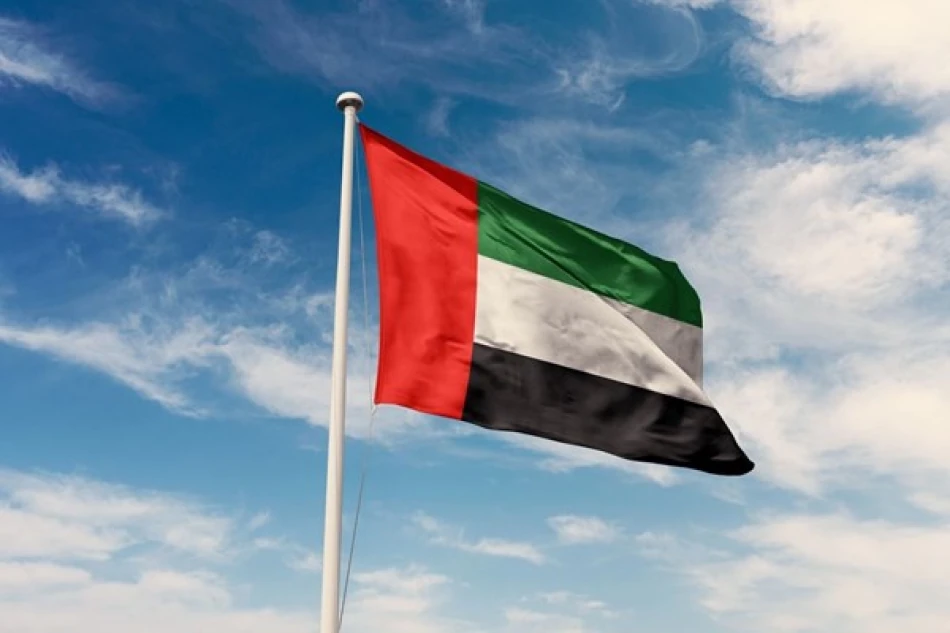
UAE's Influential Role in Defusing Crises and Promoting Stability on International Day of Peace
UAE Emerges as Global Peace Broker Amid Rising Regional Conflicts
The United Arab Emirates is positioning itself as the Middle East's premier diplomatic mediator, leveraging its international relationships and neutral stance to defuse multiple global crises. As the world marks International Peace Day on September 21, the UAE's role as a trusted intermediary has expanded dramatically across conflicts spanning from Gaza to Ukraine, with concrete humanitarian aid totaling billions of dollars backing its diplomatic efforts.
Palestinian Crisis: Humanitarian Leadership Meets Diplomatic Pressure
The UAE has emerged as one of the most significant humanitarian contributors to Gaza, delivering approximately 90,000 tons of aid worth $1.8 billion through its "Operation Gallant Knight 3" by mid-September 2025. This massive aid operation utilizes land, sea, and air routes, demonstrating the Emirates' logistical capabilities and commitment to Palestinian relief.
During the Arab League ministerial session on September 4, the UAE called for unprecedented international support to halt Israeli operations in Gaza and ensure unobstructed humanitarian access. The Emirates joined a coalition condemning the Israeli Knesset's approval of declaring "Israeli sovereignty" over the occupied West Bank, marking a significant diplomatic stance that aligns with broader Arab and Islamic positions.
The UAE's approach reflects a calculated balance—maintaining its Abraham Accords relationship with Israel while asserting Palestinian rights and supporting the two-state solution. This positioning allows Abu Dhabi to maintain credibility with both Western allies and Arab partners.
Sudan: $600 Million Commitment Amid Complex Conflict
The UAE's involvement in Sudan's crisis showcases its long-term strategic thinking. Since April 2023, the Emirates has provided $600.4 million in humanitarian assistance, building on $3.5 billion in aid over the past decade. This sustained commitment predates the current conflict, indicating deep strategic interests in Sudan's stability.
Multilateral Diplomatic Framework
The UAE co-hosted a high-level humanitarian conference in Addis Ababa with Ethiopia, the African Union, and IGAD in February 2025, pledging an additional $200 million. This multilateral approach helps legitimize UAE involvement while sharing diplomatic costs with regional partners.
The formation of a quadrilateral group including Egypt, Saudi Arabia, and the United States demonstrates how the UAE leverages partnerships with both regional and global powers. The September 13 joint statement from this group established key principles: Sudanese sovereignty and territorial integrity, rejection of military solutions, and Sudanese-led governance transitions.
Syria: Sanctions Relief and Reconstruction Positioning
The UAE's Syria strategy anticipates post-conflict reconstruction opportunities. The Emirates welcomed President Trump's announcement lifting sanctions on Syria in May, positioning itself favorably for future economic engagement. This forward-looking approach mirrors the UAE's successful strategy in other post-conflict environments.
The UAE participated in intensive discussions with Arab foreign ministers and Turkey in July, focusing on supporting the Syrian government's reconstruction efforts. The Emirates' condemnation of Israeli strikes on Syria while supporting ceasefire initiatives in Sweida province demonstrates its commitment to Syrian territorial integrity.
Caucasus Success: Armenia-Azerbaijan Breakthrough
Perhaps the UAE's most significant diplomatic achievement in 2025 was facilitating the Armenia-Azerbaijan peace agreement signed in Washington in August. This success required months of careful preparation, including hosting both leaders in separate meetings in July.
The agreement established full diplomatic and trade relations while ensuring mutual respect for sovereignty and territorial integrity. This breakthrough ends decades of conflict and positions the UAE as a capable mediator in complex territorial disputes—experience that could prove valuable in other regional conflicts.
Gulf Security: Qatar Crisis Response
The Iranian attack on Qatar's Al Udeid base in June and subsequent Israeli aggression against Qatar tested Gulf unity. The UAE's immediate solidarity with Qatar, including Sheikh Mohammed bin Zayed's personal diplomacy and participation in emergency Gulf and Arab summits, reinforced the principle that attacks on any Gulf state threaten collective security.
The UAE's firm stance—declaring Qatar's security "inseparable" from Gulf security—sends a clear message to regional adversaries while strengthening intra-Gulf cooperation. The Emirates summoned Israel's deputy ambassador to express condemnation, demonstrating that even Abraham Accords partners face diplomatic consequences for threatening Gulf states.
Ukraine Mediation: 17 Prisoner Exchanges
The UAE's role in facilitating 17 prisoner exchanges between Russia and Ukraine, involving 4,641 prisoners total, represents sustained humanitarian diplomacy. This consistent success rate demonstrates the Emirates' unique position as a trusted intermediary between adversarial powers.
Unlike Western nations constrained by sanctions regimes or regional powers with clear alignments, the UAE maintains working relationships with both Moscow and Kyiv. This neutrality, combined with significant financial resources, makes it an effective mediator in conflicts where traditional diplomatic channels fail.
Strategic Implications: The UAE Model
The UAE's diplomatic approach offers several advantages over traditional great power mediation. Its relatively small size reduces threat perceptions, while its significant financial resources provide concrete incentives for cooperation. The Emirates' willingness to engage with all parties—including Iran, Israel, Russia, and various Arab governments—creates unique opportunities for backchannel diplomacy.
This strategy also serves UAE interests by positioning the country as indispensable to regional stability, potentially deterring future threats while building goodwill with multiple stakeholders. As regional conflicts intensify, the UAE's model of "checkbook diplomacy" backed by genuine mediation efforts may become increasingly valuable to international peace efforts.
Looking Forward: Expanding Influence
The UAE's success in 2025 establishes it as a serious alternative to traditional mediators. Unlike Qatar's focus on hosting talks or Saudi Arabia's oil-backed influence, the UAE combines financial resources with genuine diplomatic expertise and maintained neutrality.
As the September 21 International Peace Day approaches, the UAE's track record of concrete achievements—from prisoner exchanges to humanitarian aid delivery—demonstrates that middle power diplomacy can achieve results where great power competition creates deadlock. This model may increasingly define Middle Eastern diplomacy in an era of multipolar competition.
Most Viewed News

 Layla Al Mansoori
Layla Al Mansoori






